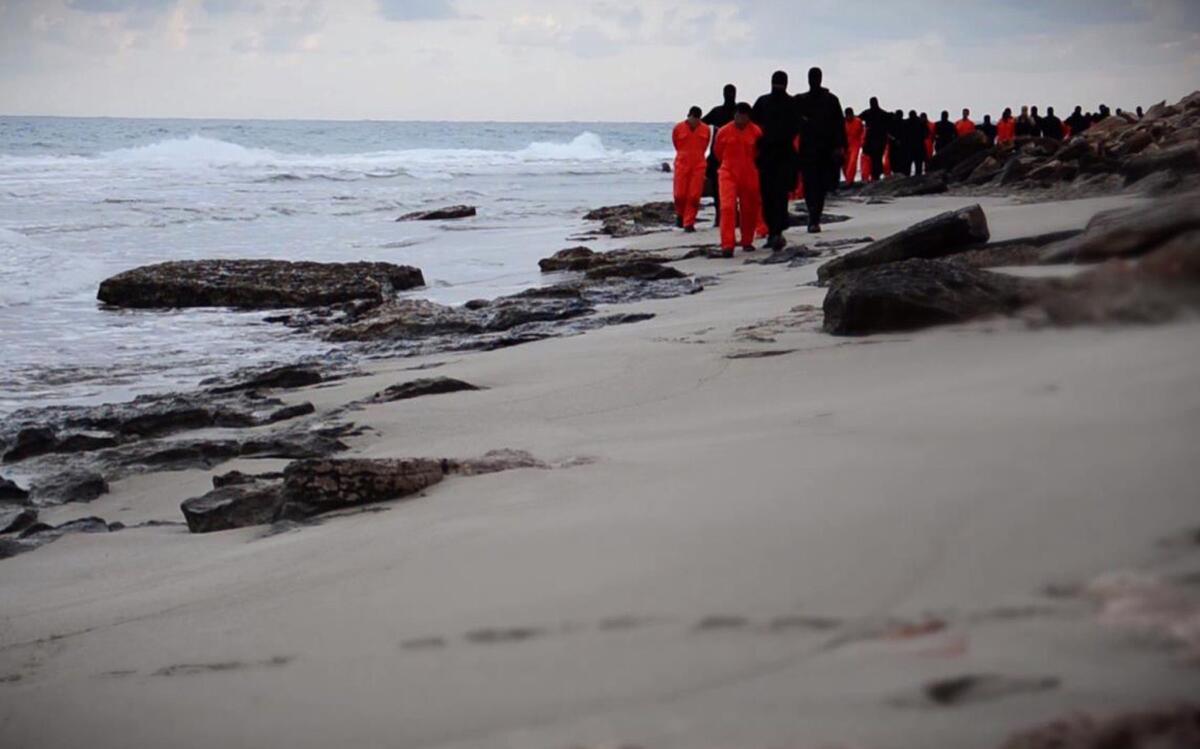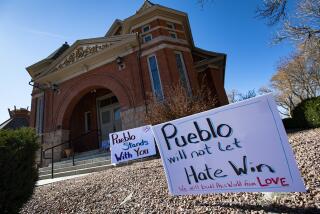Editorial: The right strategy against Islamic State

Horrific events in Libya and Denmark in recent days demonstrate the two sorts of dangers posed by the fundamentalists who call themselves Islamic State: atrocities carried out in areas under its control and acts of violence committed in the West by individuals radicalized by the group’s message. A strategy to “degrade and destroy” Islamic State must address both threats.
On Sunday the group released a video of the beheadings of 21 Egyptian Christian men by a Libyan affiliate, another example of the savagery visited by Islamic State on those it considers enemies or apostates. A day earlier, a man identified as Omar Abdel Hamid Hussein fired shots at a Copenhagen center hosting a debate on free speech, killing a film director, then moved on to a synagogue, where he killed a security guard. The attacks were reminiscent of the shootings in Paris last month at the offices of the magazine Charlie Hebdo and at a kosher supermarket. The head of the Danish security service said that Hussein, a former gang member who was born in Denmark, may have been “inspired by militant Islamist propaganda issued by [Islamic State].”
The U.S. has carried out airstrikes against Islamic State positions in Syria and Iraq, a campaign for which President Obama belatedly has requested authorization from Congress. But he rightly has portrayed the military action as a multinational effort and has promised that U.S. forces wouldn’t engage in “long-term, large-scale ground combat operations” against Islamic State. That remains the proper strategy.
As for neutralizing Islamic State’s propaganda, the U.S. has been engaged in a campaign to counter the suggestion that the group’s interpretation of Islam is a valid one. How that response is framed is crucial. Critics accuse Obama of excessive delicacy and political correctness because he doesn’t refer to “Islamic terrorism.” But the president’s diplomatic language doesn’t mean he’s in denial about either the existence or the popular appeal of radical interpretations of Islam. Indeed, the White House this week is sponsoring a summit on curbing violent extremism that is expected to showcase efforts by Muslim leaders to protect young people from extremist ideologies.
Portraying the campaign against Islamic State as a war on Islam wouldn’t just be inaccurate; it would be incendiary and self-defeating.
Follow the Opinion section on Twitter @latimesopinion and Facebook
More to Read
Sign up for Essential California
The most important California stories and recommendations in your inbox every morning.
You may occasionally receive promotional content from the Los Angeles Times.










